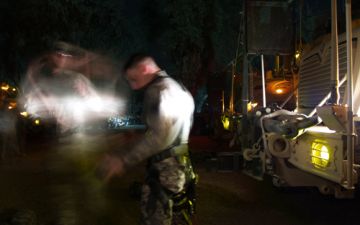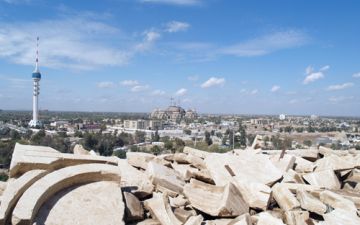Baghdad: Election Day
Under the quarter moon, in the high beams of their armored vehicles, US soldiers are gearing up for the most important day of the Iraq War. Seven years ago, this month, the United States and its “Coalition of the Willing” invaded in a bid to oust Saddam Hussein and seize his cache of weapons of mass destruction. When WMDs turned out to be a mirage, bringing democracy to Iraq became the war’s new raison d’être. Seven years after the beginning of the war, on March 7, 2010, the reality of Iraqi democracy is put to the test.


